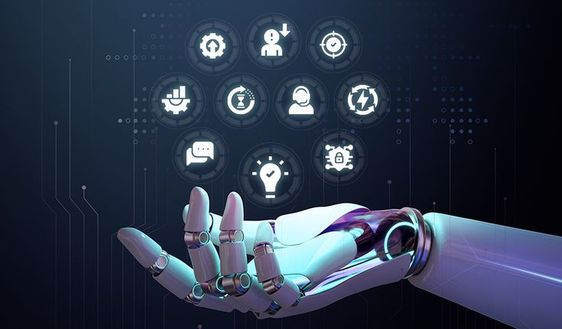In the ever-evolving landscape of manufacturing, robotics and automation stand as powerful catalysts for innovation, efficiency, and competitiveness. From assembly lines to warehouses, robots and automated systems are reshaping the way goods are produced, driving significant advancements across industries. In this article, we explore the profound impact of robotics and automation on modern manufacturing and the opportunities and challenges they present.
Enhancing Efficiency and Productivity
One of the most significant benefits of robotics and automation in manufacturing is their ability to enhance efficiency and productivity. Robots can perform repetitive tasks with unmatched speed, precision, and consistency, reducing cycle times and increasing throughput. Automated systems streamline workflows, minimize downtime, and optimize resource utilization, leading to higher output and lower production costs. By automating mundane and labor-intensive processes, manufacturers can reallocate human resources to more value-added activities, driving overall operational efficiency and competitiveness.

Improving Quality and Consistency
In addition to boosting productivity, robotics and automation play a crucial role in improving product quality and consistency. By eliminating human error and variability, robots ensure that each product meets exacting standards and specifications. Advanced sensing and inspection technologies enable robots to detect defects and deviations with unparalleled accuracy, facilitating real-time quality control and corrective actions. Consistent quality not only enhances customer satisfaction but also reduces rework, scrap, and warranty costs, contributing to long-term profitability and brand reputation.
Enabling Flexibility and Adaptability
One of the hallmarks of modern manufacturing is the need for flexibility and adaptability to meet dynamic market demands and changing consumer preferences. Robotics and automation provide manufacturers with the agility to reconfigure production processes quickly and efficiently in response to evolving requirements. Collaborative robots, or cobots, equipped with advanced sensing and programming capabilities, can work alongside human operators in flexible manufacturing environments, handling diverse tasks and product variants with ease. Automated guided vehicles (AGVs) and mobile robots enable seamless material handling and logistics, facilitating just-in-time production and lean manufacturing practices.
Empowering Workforce and Skills Development
Contrary to popular misconception, the rise of robotics and automation in manufacturing does not necessarily lead to widespread job loss. Instead, it reshapes the nature of work, creating new opportunities for upskilling, reskilling, and workforce empowerment. As robots take on routine and physically demanding tasks, human workers are freed up to focus on higher-level activities such as problem-solving, innovation, and process optimization. Manufacturers invest in training programs and educational initiatives to equip their workforce with the skills and knowledge needed to operate and maintain automated systems effectively. By fostering a culture of lifelong learning and continuous improvement, companies ensure that their workforce remains competitive and adaptable in an increasingly automated world.

Addressing Challenges and Ethical Considerations
While the benefits of robotics and automation in manufacturing are undeniable, they also present challenges and ethical considerations that must be addressed. Concerns about job displacement, worker safety, and ethical implications of autonomous systems require careful consideration and proactive measures. Manufacturers must prioritize worker well-being, providing training, support, and opportunities for career advancement in the face of technological disruption. Ethical guidelines and regulations are needed to govern the responsible use of robotics and AI, ensuring transparency, accountability, and adherence to ethical principles.
The Future of Manufacturing
As robotics and automation continue to advance, their role in manufacturing will only grow in importance. From small-scale operations to large-scale factories, robots and automated systems will become increasingly integrated into every aspect of the manufacturing value chain. The rise of collaborative robotics, AI-driven automation, and cyber-physical systems heralds a new era of smart manufacturing characterized by connectivity, intelligence, and autonomy. By embracing robotics and automation as enablers of innovation and competitiveness, manufacturers can unlock new opportunities for growth, sustainability, and prosperity in the digital age.

In conclusion, robotics and automation are revolutionizing the manufacturing industry, driving efficiency, quality, and flexibility on a scale never before seen. By harnessing the transformative power of robotics and automation, manufacturers can navigate the complexities of the modern marketplace, accelerate innovation, and chart a course toward a more prosperous and sustainable future.

